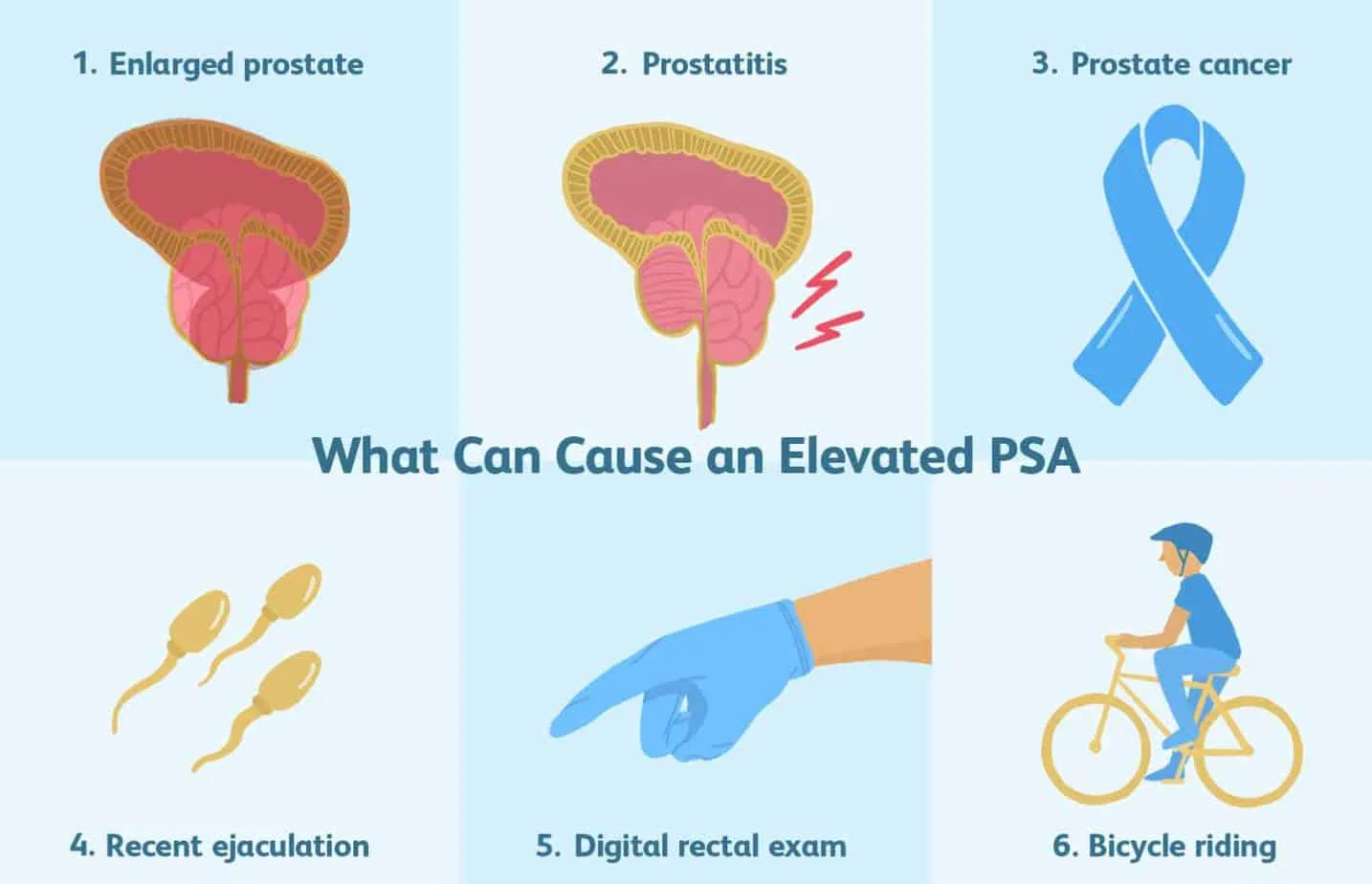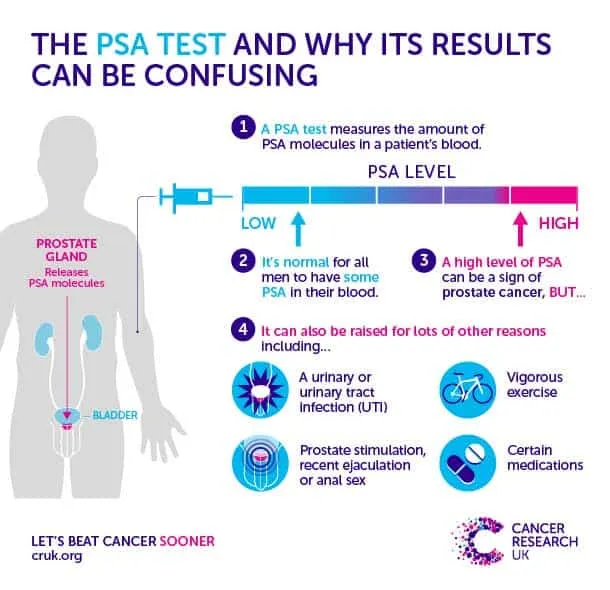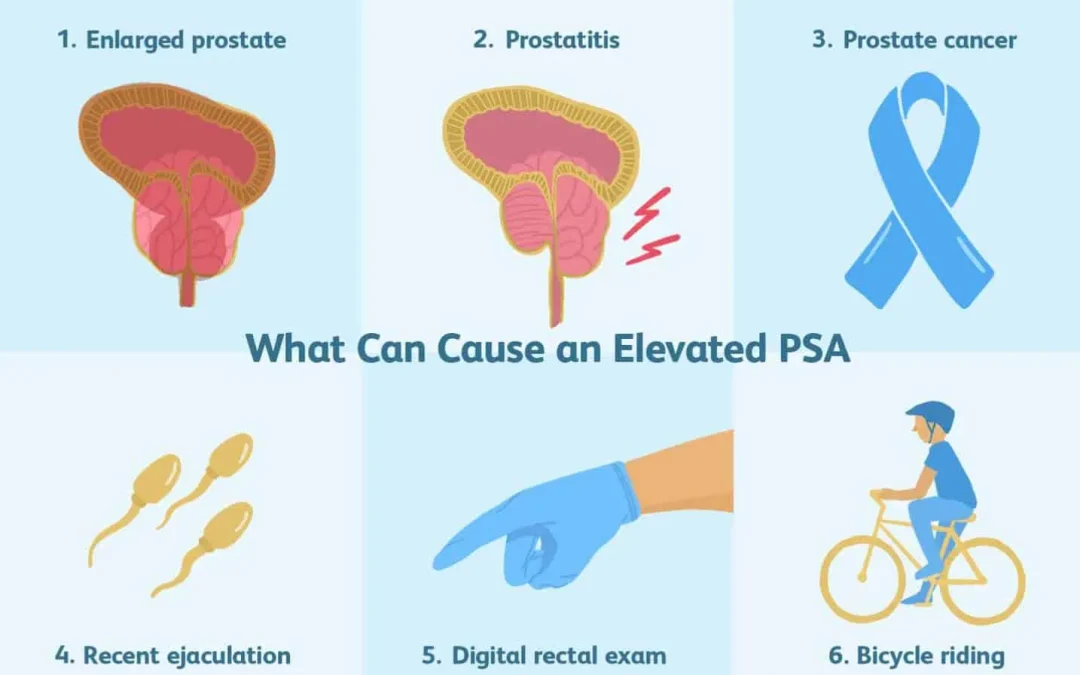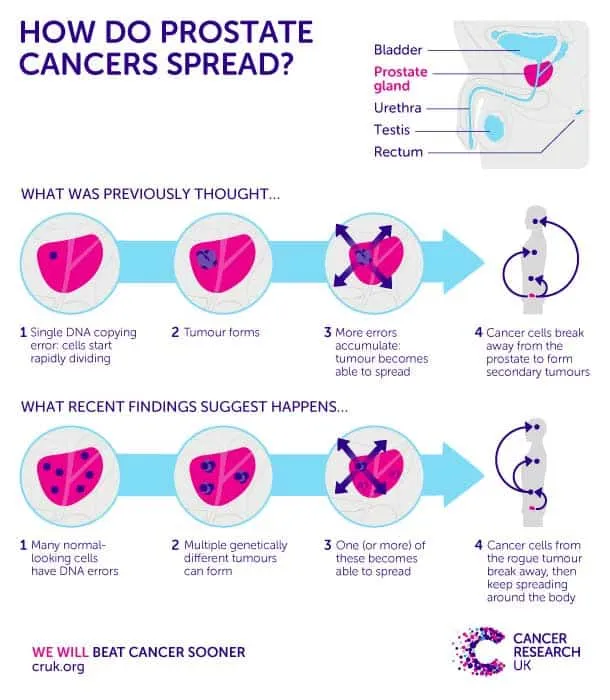HOW TO TREAT ELEVATED PSA LEVELS
THE PROSTATE & PSA LEVELS
If you ever test for elevated PSA levels, please do NOT go into panic mode. We’ve seen several men with a high prostate PSA levels that are on testosterone therapy. These men get their yearly check up, and are absolutely fine or free of prostate cancer. Early detection of prostate cancer currently relies on screening with the PSA test, which does not clearly distinguish between prostate cancer and less severe conditions. As a result, many men are subjected to unnecessary prostate biopsies. There are over 1 million prostate biopsies performed in the US each year. Only 20% detect aggressive prostate cancer. Furthermore, 80% of prostate biopsies are either negative or detect a low-grade, non-life threatening form of prostate cancer.
OVER USAGE OF PSA TESTING
The scientist who discovered the antigen “PSA” (Richard J. Ablin) wrote an article on how the PSA test is being over used. I think his article title says it all when he wrote on Medscape news “PSA Test Is Misused, Unreliable, Says the Antigen’s Discoverer.”
In his opinion, PSA best shows cancer progression but is NOT a good indicator of cancer in the first place. As a specialized clinic in hormone replacement therapy and wellness, we understand that as men get older, the body has to deal with cells going a bit haywire. As a result, this can cause what otherwise is known as cancer or mutated cells. However, white blood cells (lymphocytes) eradicate the abnormal mutated cells and is a normal part of the aging process. Cancer cells could be killed before they emerge from dormancy. But most existing cancer treatments are thought to only target dividing cells, not dormant ones.


WHAT DOES PROSTATE SPECIFIC ANTIGEN (PSA) REALLY MEAN?
Is a measurement of protein produced by the prostate, usually measured in ng/dl. PSA elevates with enlarging prostates, either from inflammation, infection, or testosterone deficiency. Prostates look for more testosterone, thus all aging men have lower levels of testosterone than they did as youths and the prostate enlarges to “suck” up more testosterone to convert to the active form of it. This form is called “dihydrotestosterone.”
If your PSA is elevated then you must also have your percent free PSA measured. The amount free or unbound by protein in the blood serum is the percentage of how much PSA circulates free compared to the total PSA.
- Men with 15-25% of their PSA free (unbound) are considered within normal limits.
- Over 25% PSA free (known as free PSA or fPSA) usually indicates an enlarged prostate.
- Less than 15% free PSA is suspicious for dysplasia or early cancer.
- Less than 7% is highly suspicious of cancer.
If you happen to be in the 15% or lower bracket, we strongly recommend the 4K score prostate test. The 4Kscore combines four prostate-specific biomarkers with clinical information to provide men with an accurate and personalized measure of their risk for aggressive prostate cancer. The 4Kscore can be used prior to biopsy, or after a negative biopsy. As a result, it can predict the likelihood of cancer spreading to other parts of the body in the next 20 years.
WHAT SHOULD YOU DO IF PSA LEVELS HAPPEN TO FALL IN THIS PERCENTAGE?
First and foremost, do not panic once again, and start doing some investigation as to the cause of it, like: Do you have a strong family history of prostate cancer? Do you have signs and symptoms of testosterone deficiency? Are you experiencing signs of an enlarged prostate? Once you’ve identified these questions, take action on them, and get to the bottom of it until the problems are taken care of.
SUPPLEMENTS WE RECOMMEND FOR PROSTATE INFLAMMATION & HEALTHY FUNCTION
Nutrafol (our preferred supplement), Saw Palmetto, pumpkin seed oil, Stinging nettle, Pygeum, and Lycopene, are all supplements and elements that help to decrease prostate inflammation and can ultimately help lower PSA serum. We hope this email was informative, and if you have any questions or concerns, please feel free to contact us.










